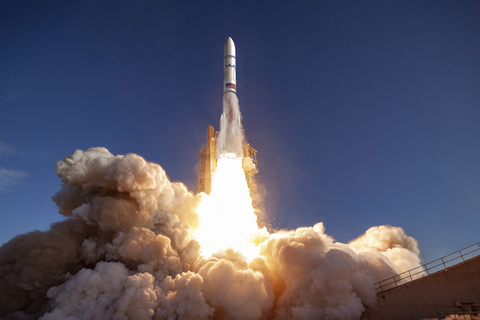Amazon’s Project Kuiper aims to support broadband with thousands of LEO satellites
Amazon is prepping for more extensive testing of its prototype Kuiper LEO broadband communications system, based on an application for Special Temporary Authority (STA) granted by the Federal Communications Commission last Friday.
Amazon asked for an STA of six months to conduct testing via operation of a ground station in Kapolei, Hawaii, which will provide telemetry, tracking and control to the experimental KuiperSat-1 and KuiperSat-2, using spectrum at 19.3-19.4 GHz (space-to-Earth transmissions) and 27.5-27.6 GHz (Earth-to-space transmissions). The ground station will be co-located with planned gateway Earth stations that will support the commercial Kuiper system, Amazon said in its application.
Amazon wants to provide “high-capacity, low-latency broadband communications services to tens of millions of unserved and underserved consumers and businesses” with its Kuiper LEO system, which was given the go-ahead by the FCC in 2020 for a constellation of 3,236 satellites at various altitudes. Kuiper will be a direct competitor to LEO satellite operator Starlink.
Amazon is nearing the launch of those first two Kuiper satellites, which the company expects to happen this month. Those experimental satellites had originally been slated to launch in the fourth quarter of 2022, but are now expected to go up soon with United Launch Alliance’s new Vulcan Centaur rocket. Tory Bruno, CEO of U.S.-based United Launch Alliance—one of three companies with which Amazon has contracted to deliver Kuiper satellites to space—tweeted today about the pending shipment of ULA’s Vulcan Centaur rocket to Florida for launch.
Amazon had announced in April of 2022 that it had secured arrangements with three commercial space companies—including Blue Origin, which, like Amazon, is owned by billionaire Jeff Bezos—to deliver the majority of its Kuiper satellites to low-Earth orbit over the course of 83 launches in five years. In addition to Blue Origin, Amazon contracted with ULA and Arianespace, a European company which was responsible for the launch of James Webb telescope.

